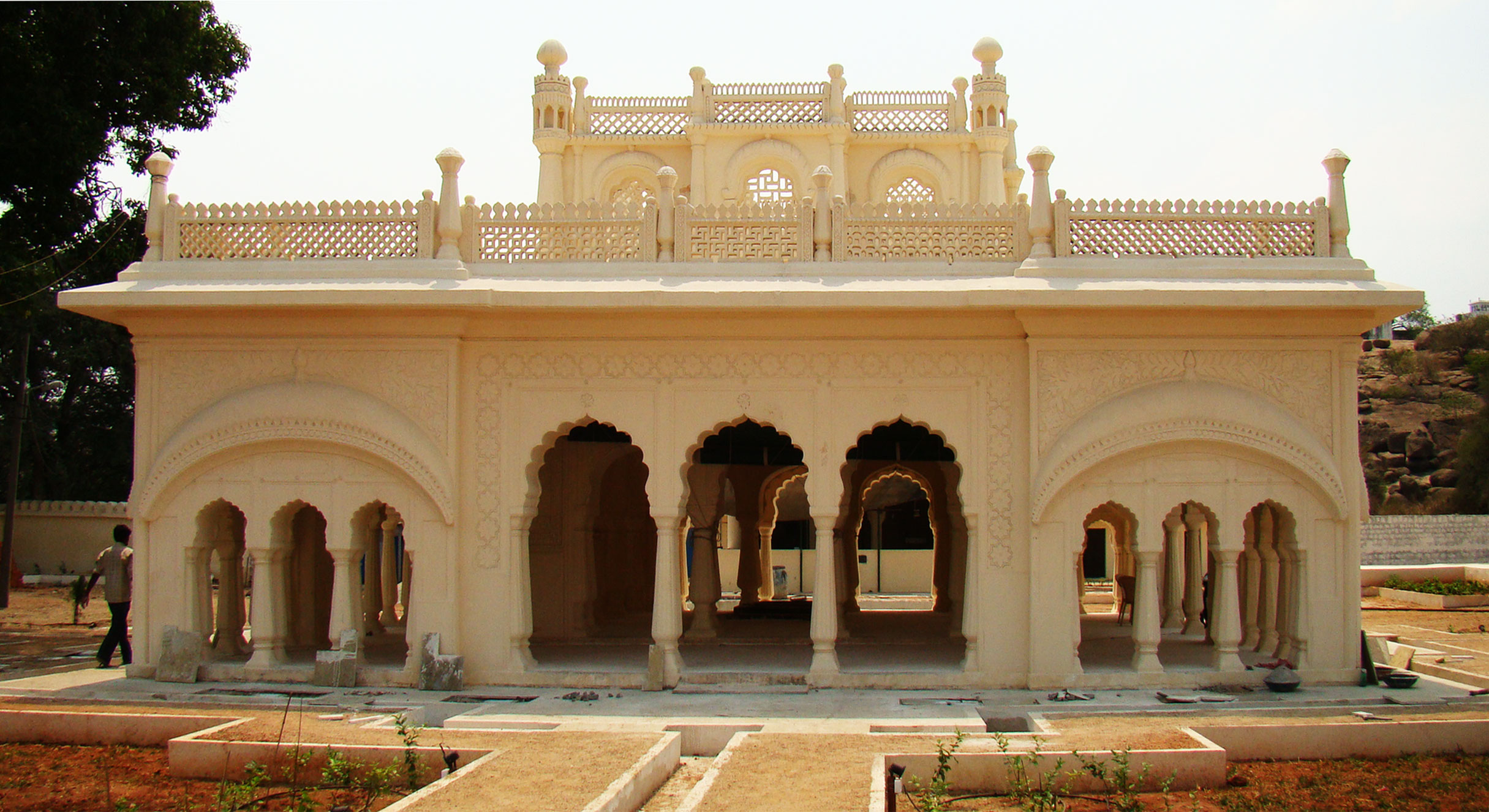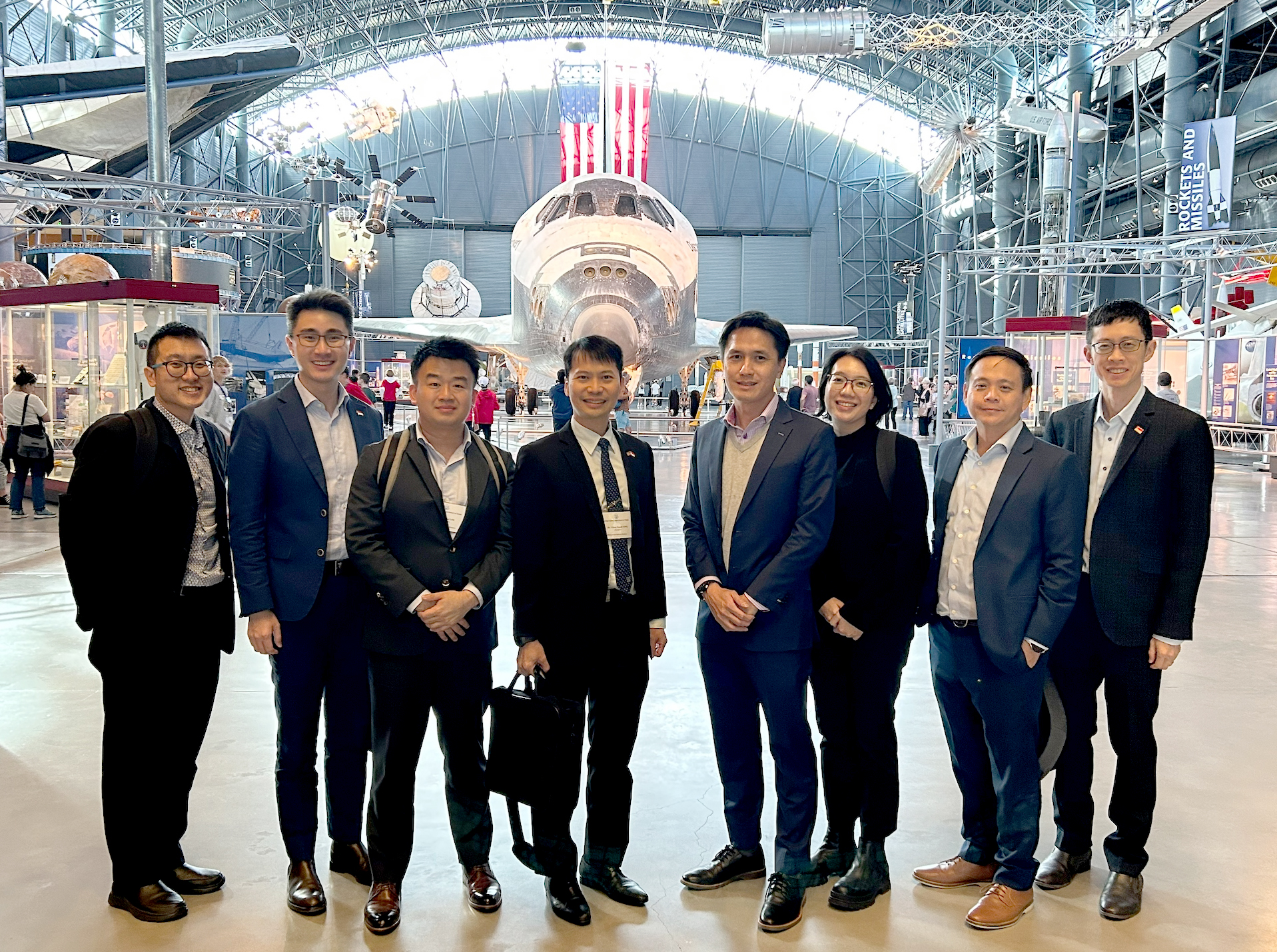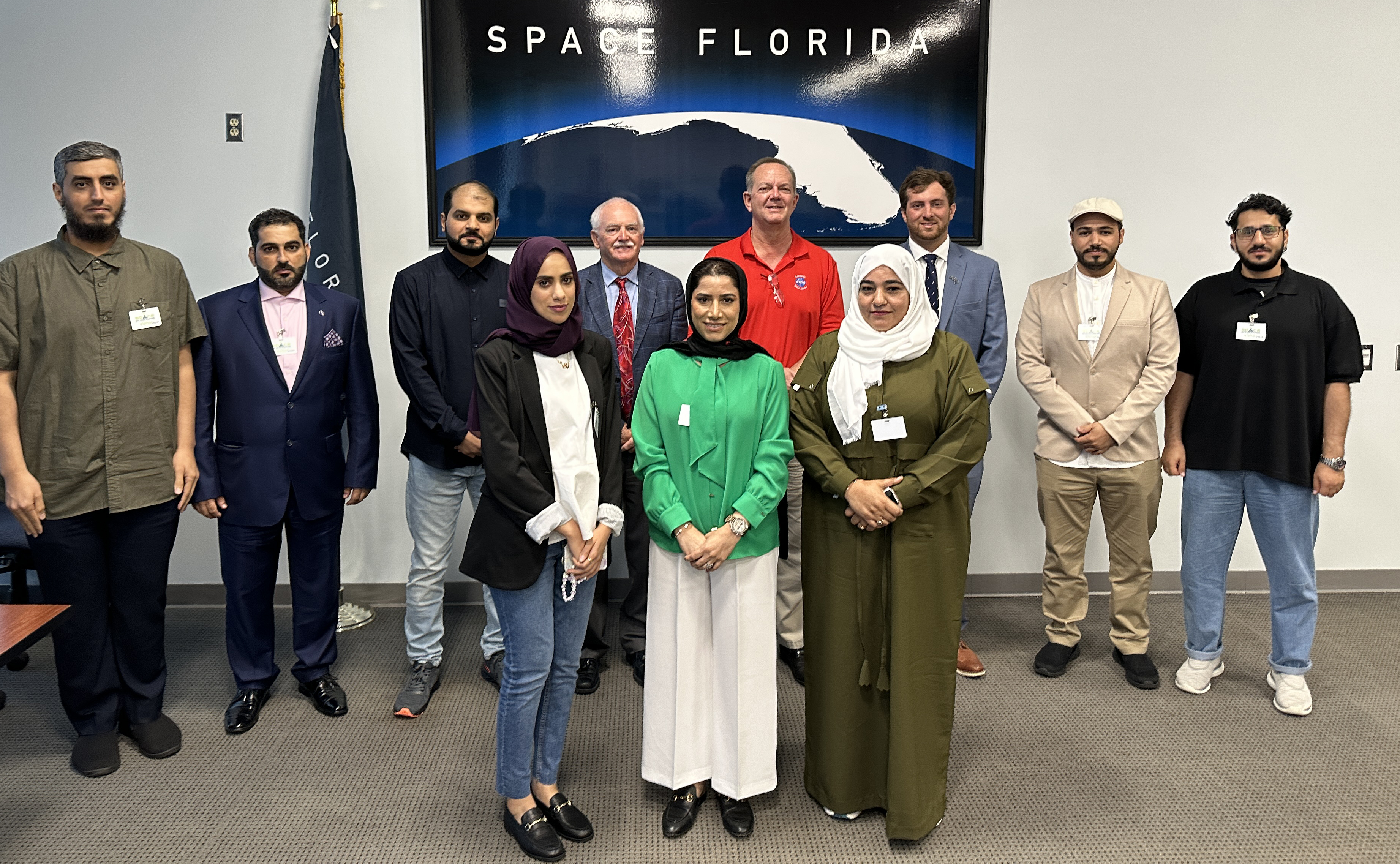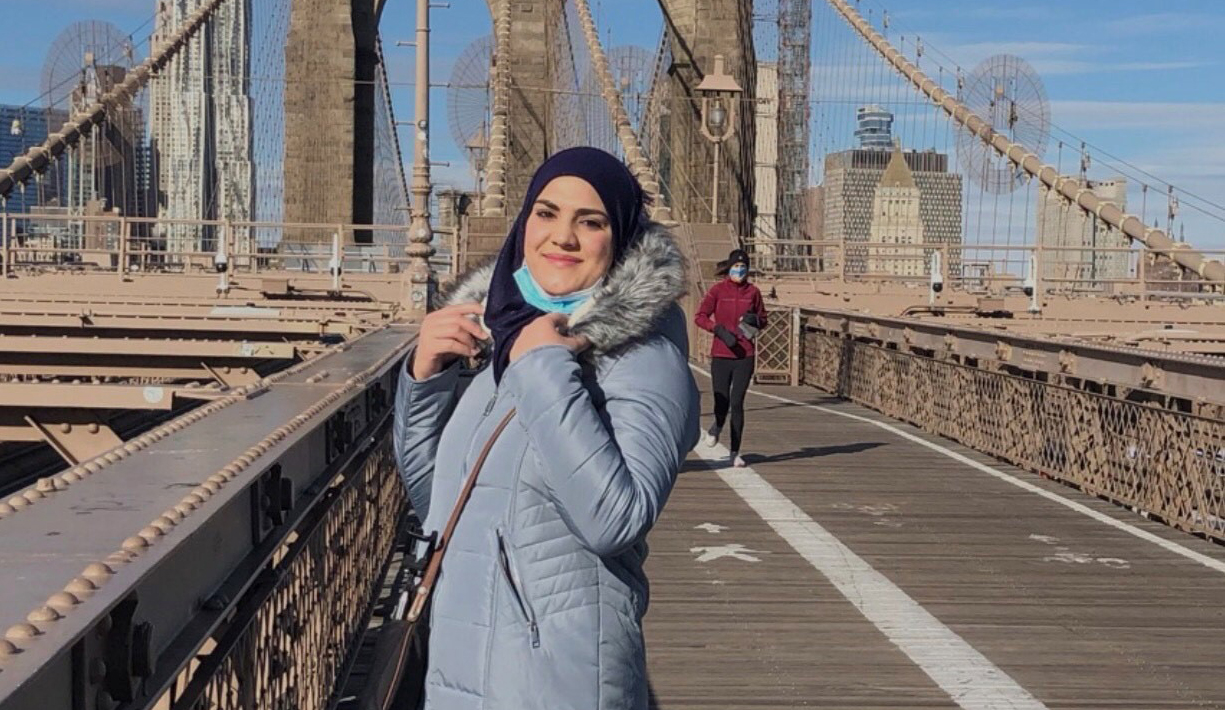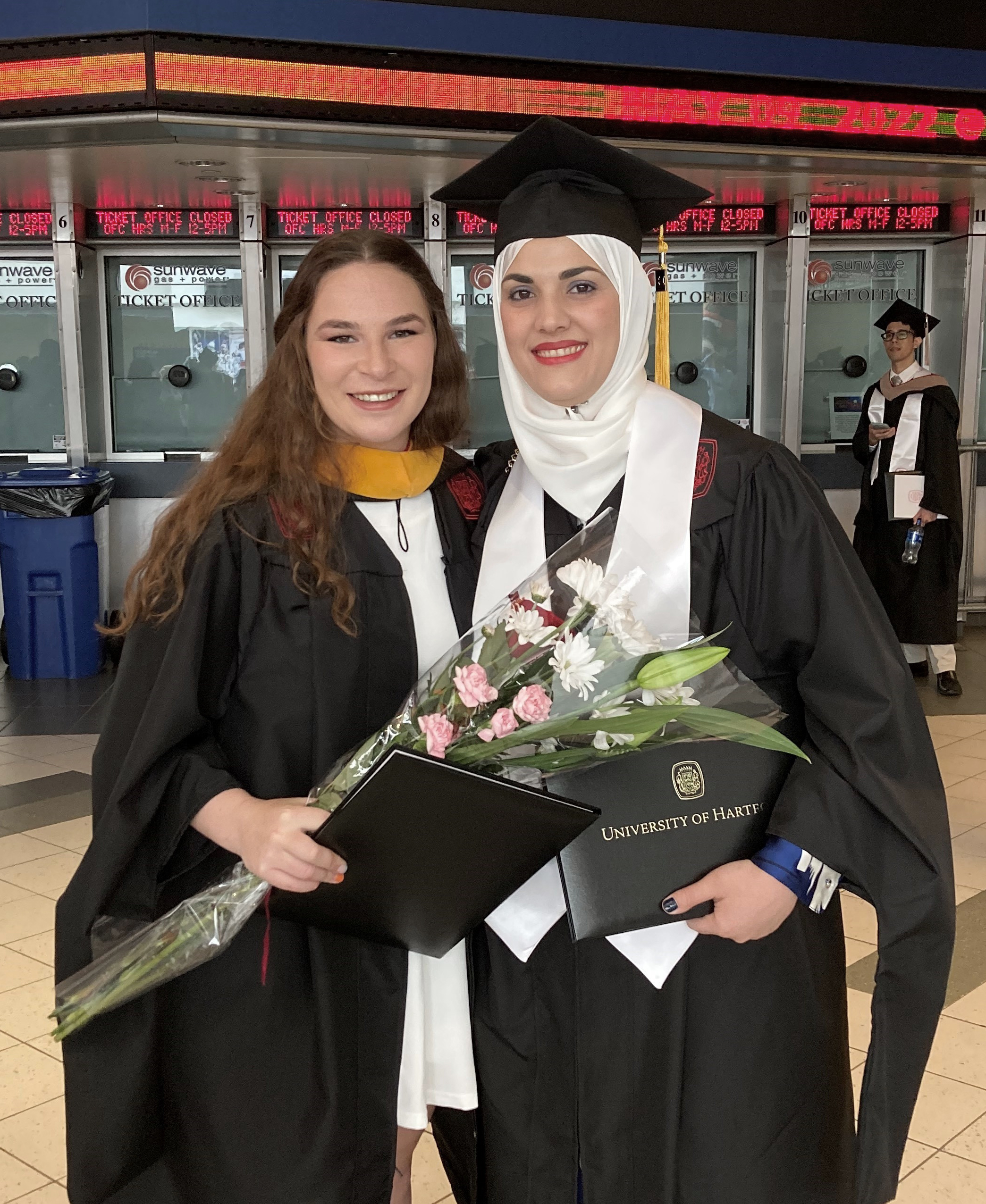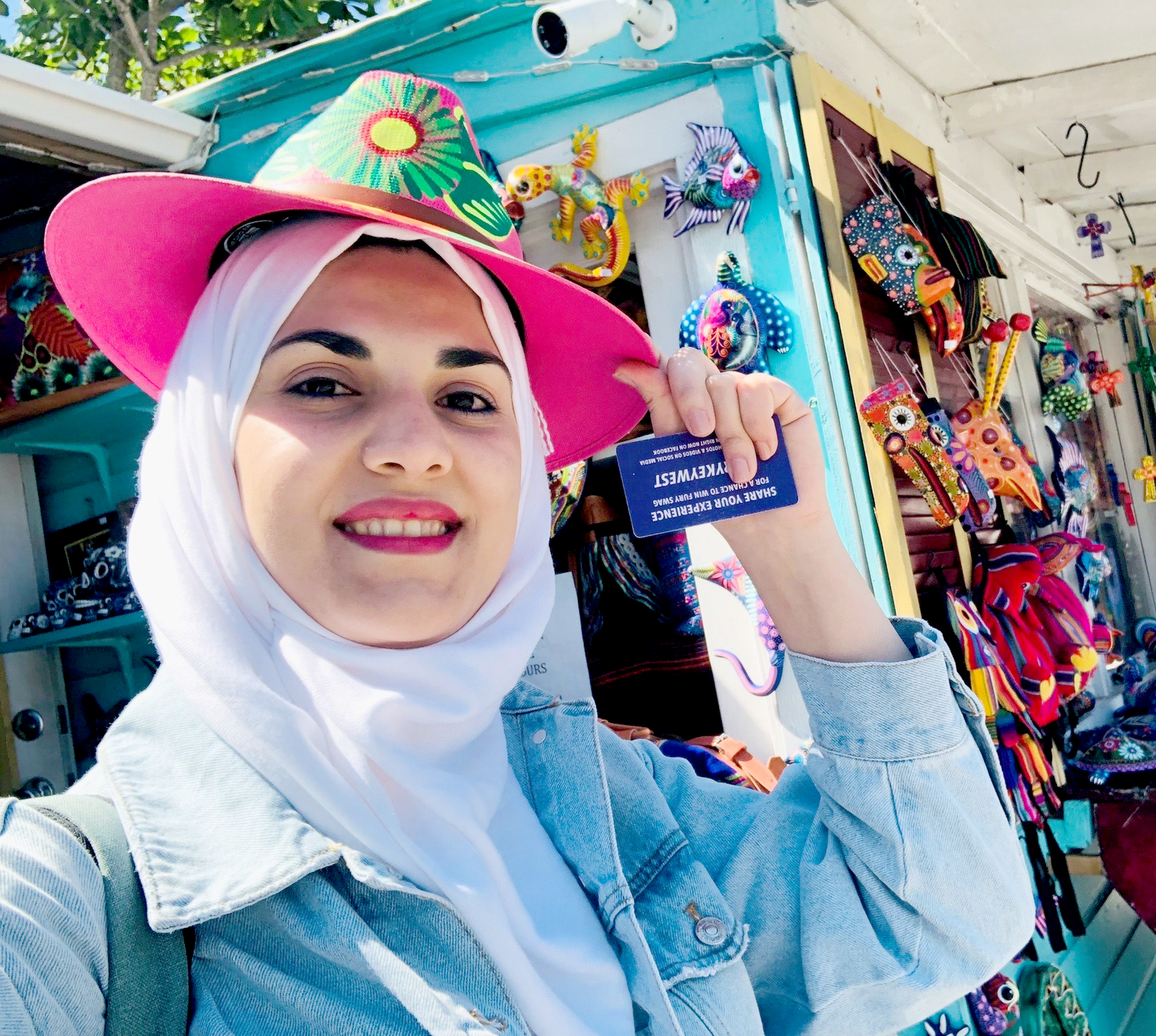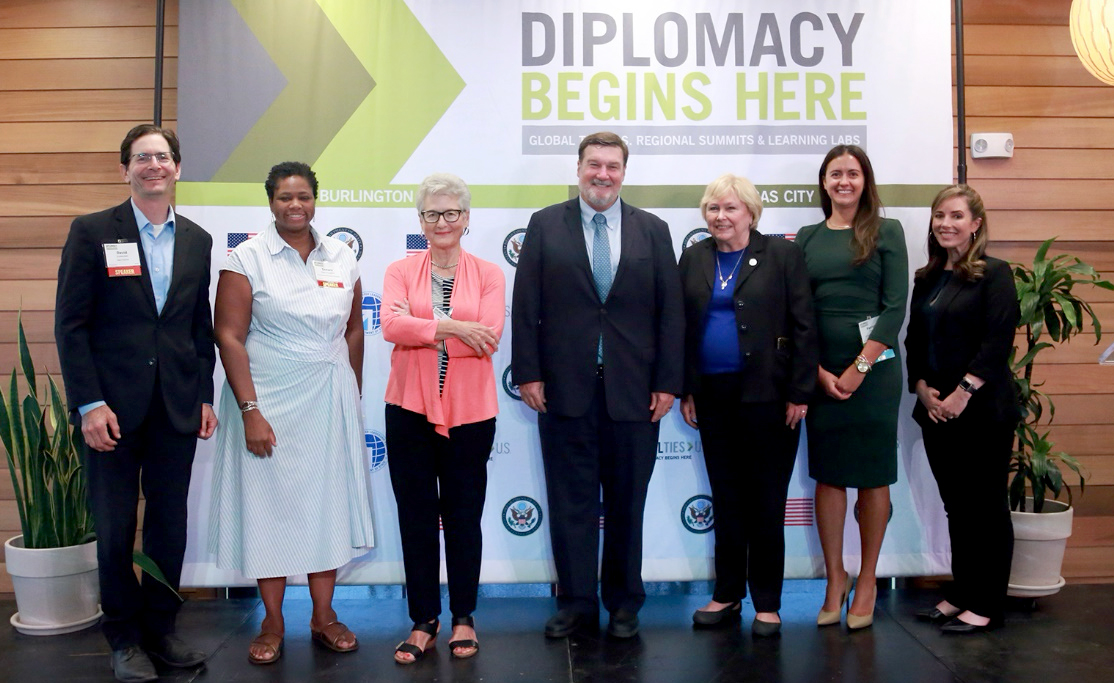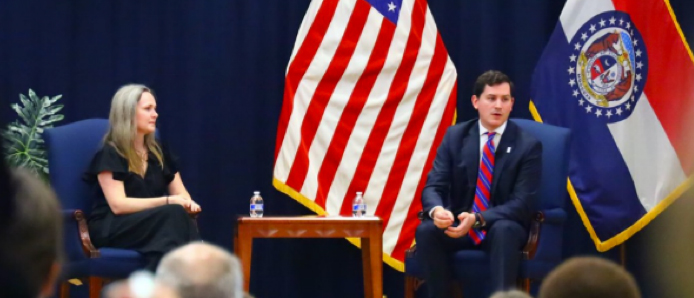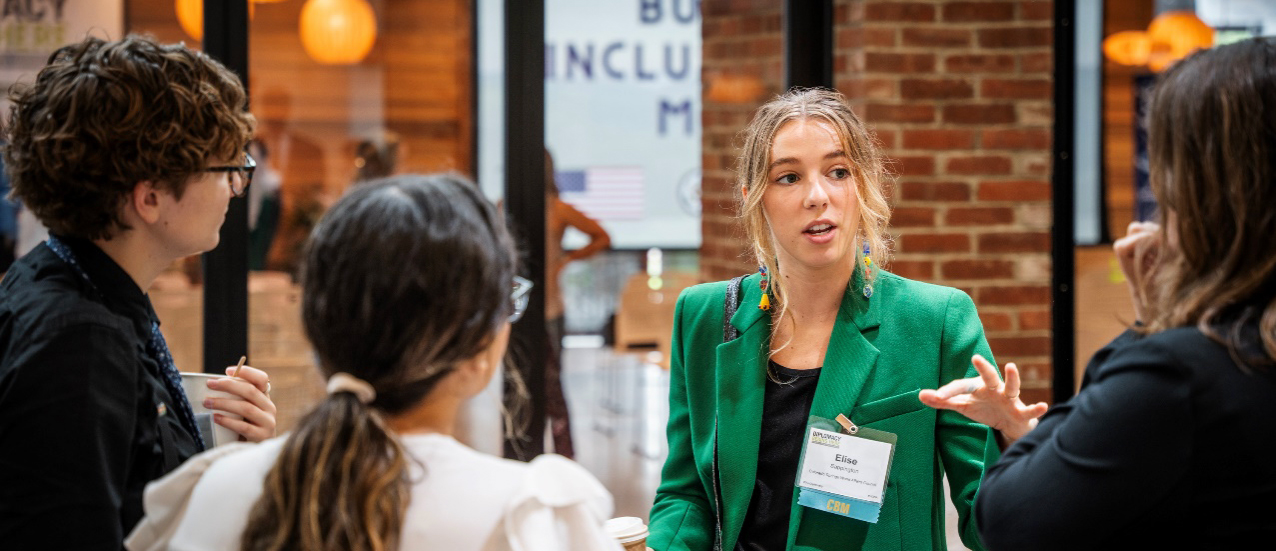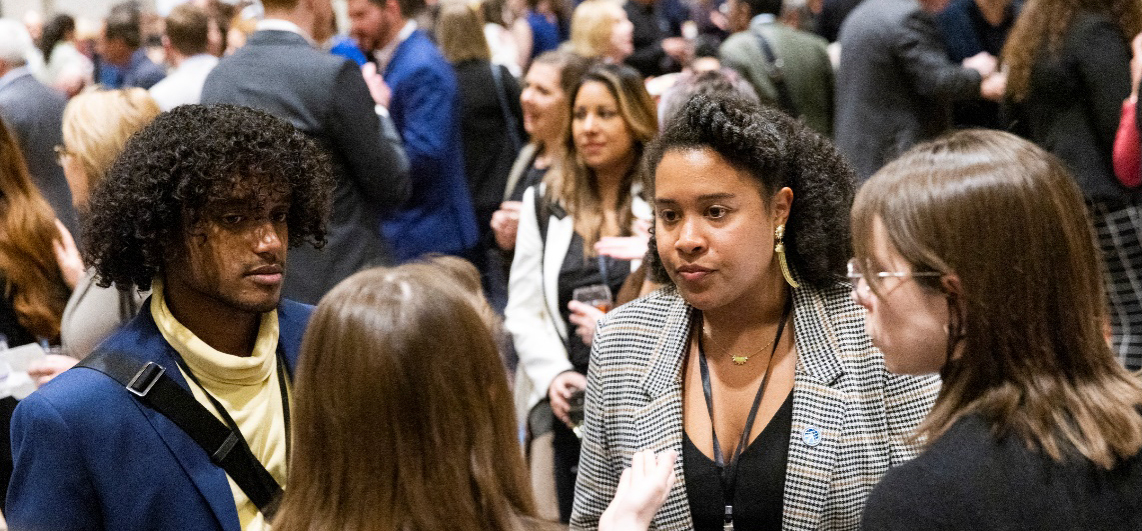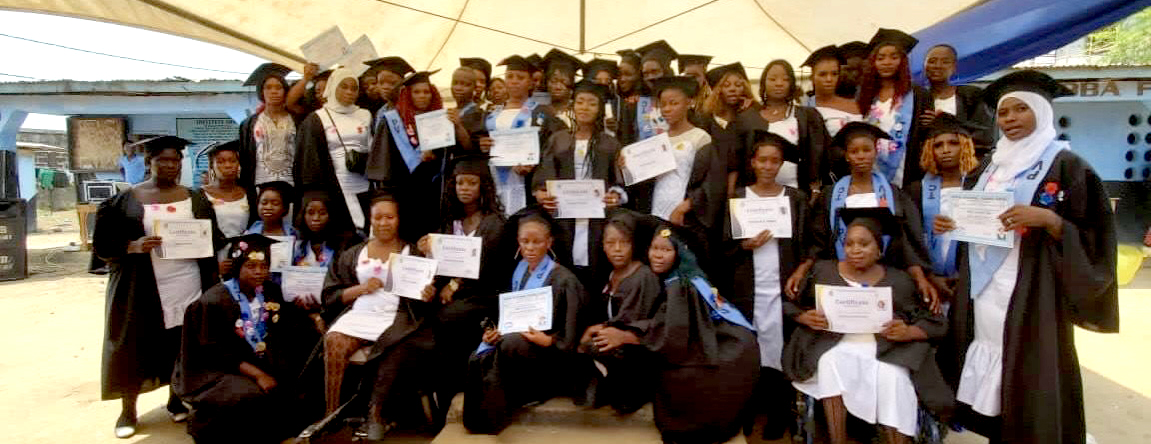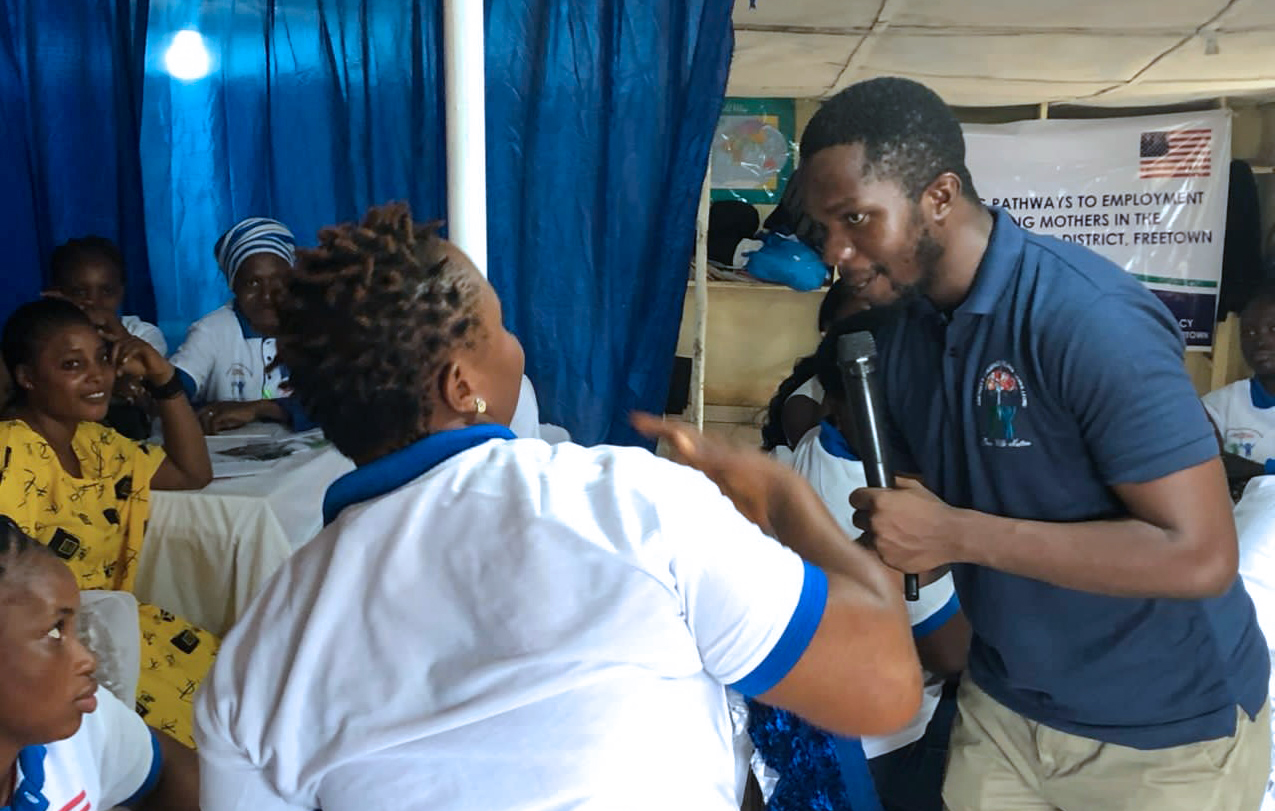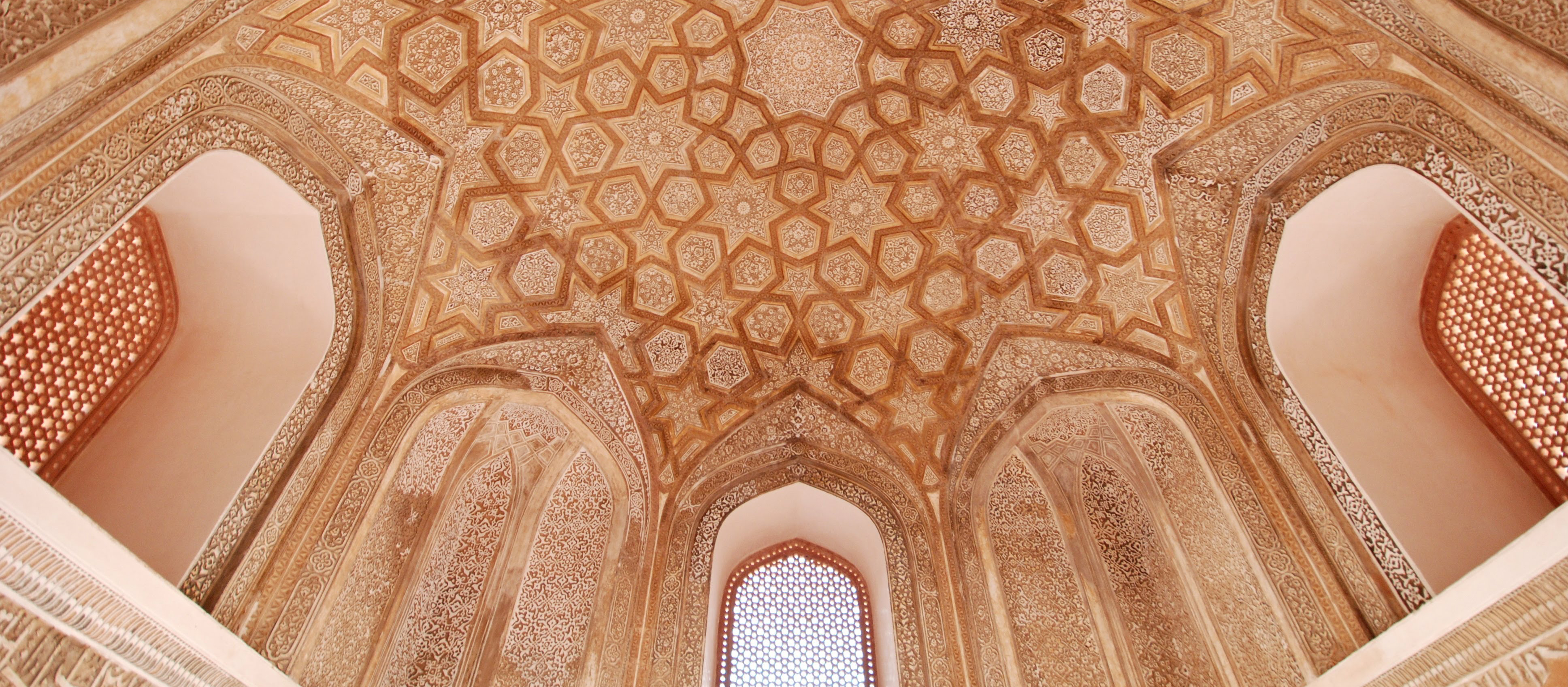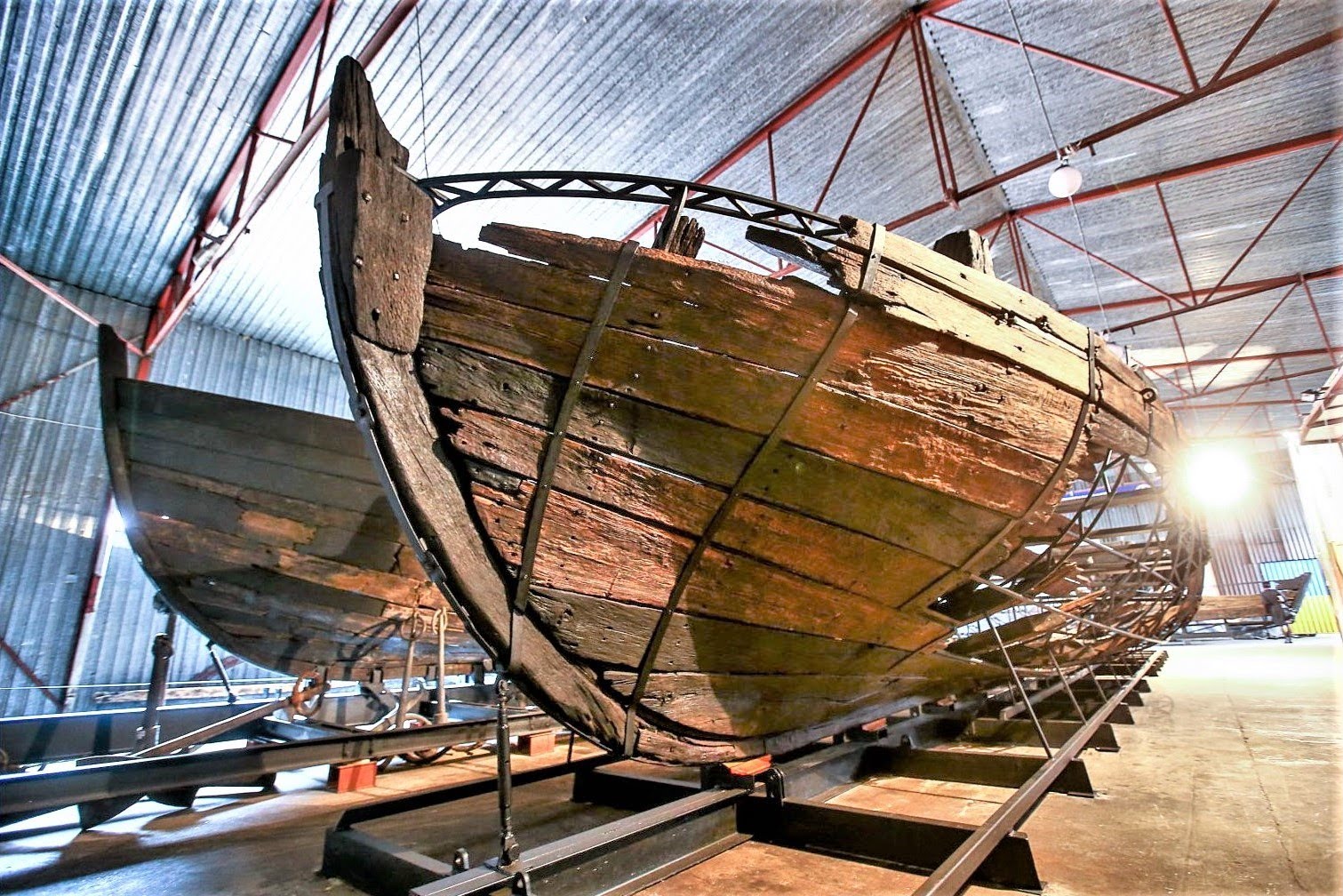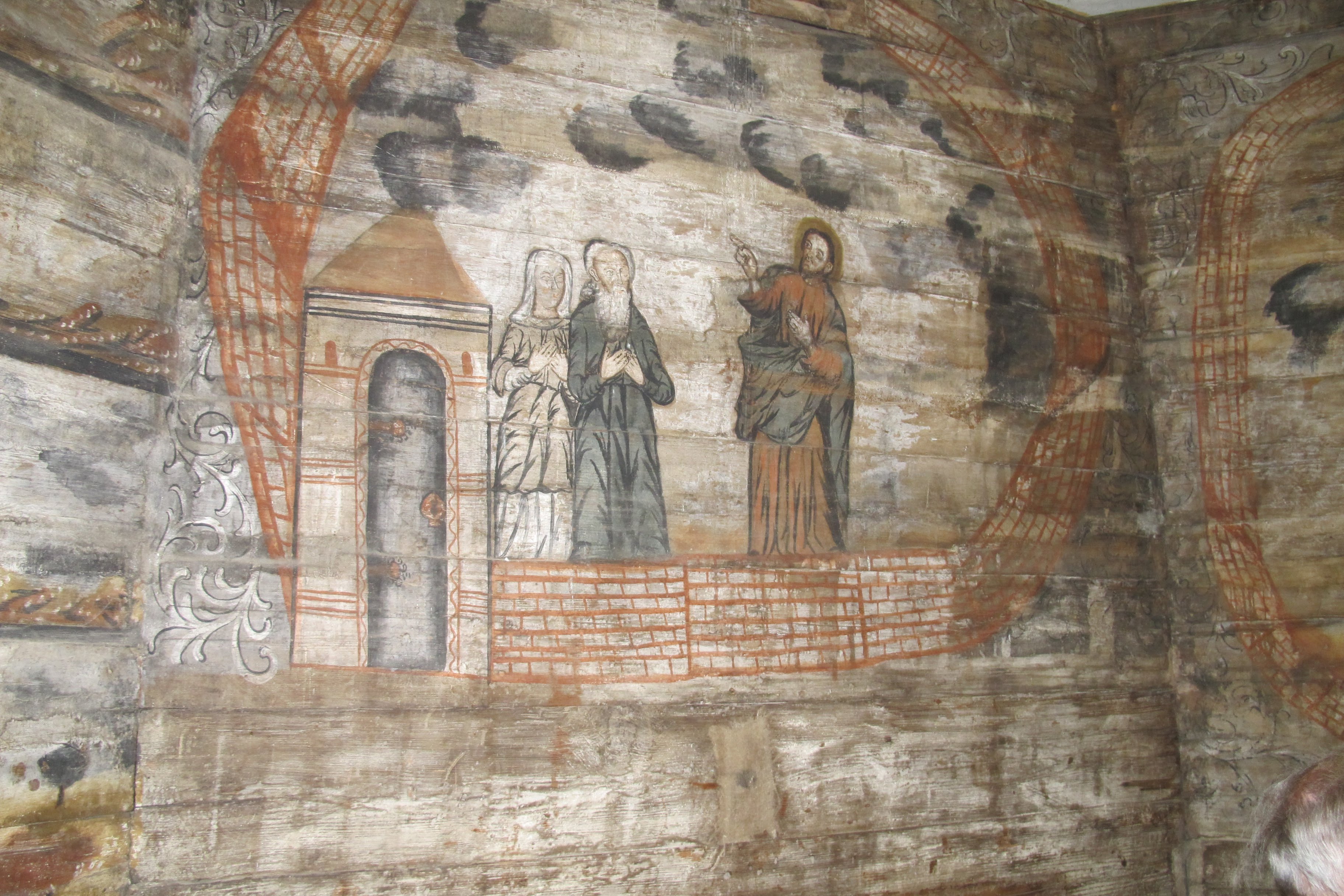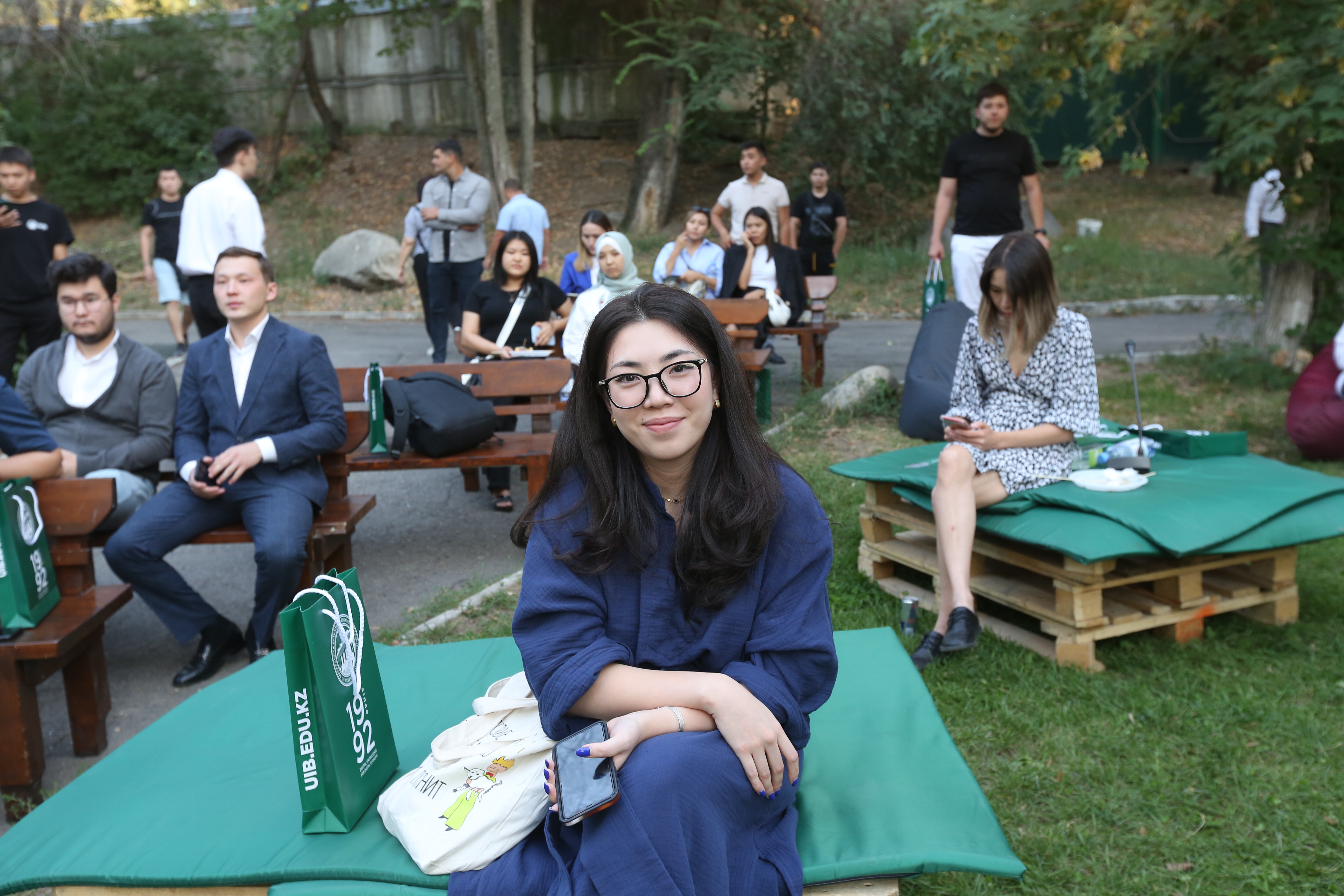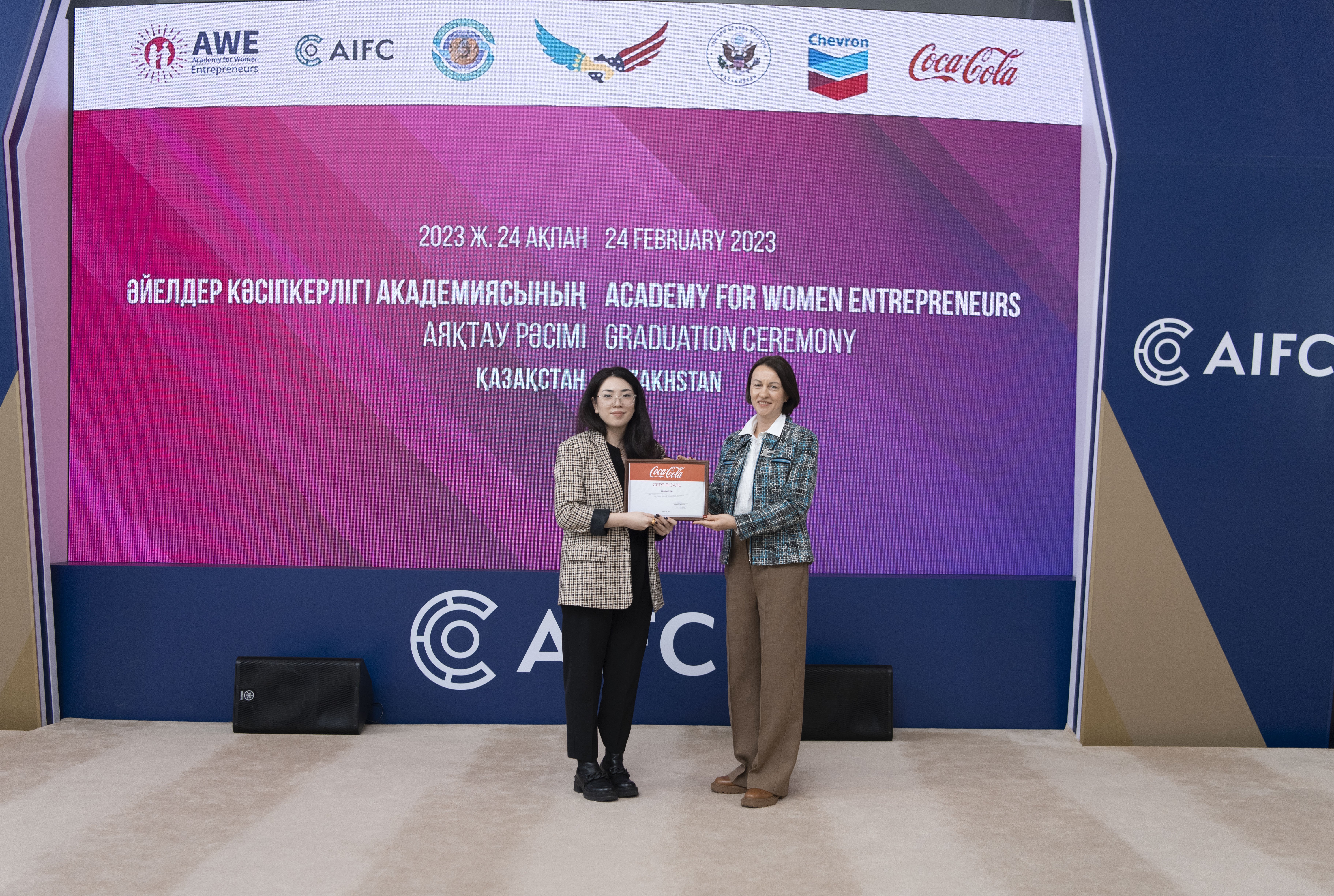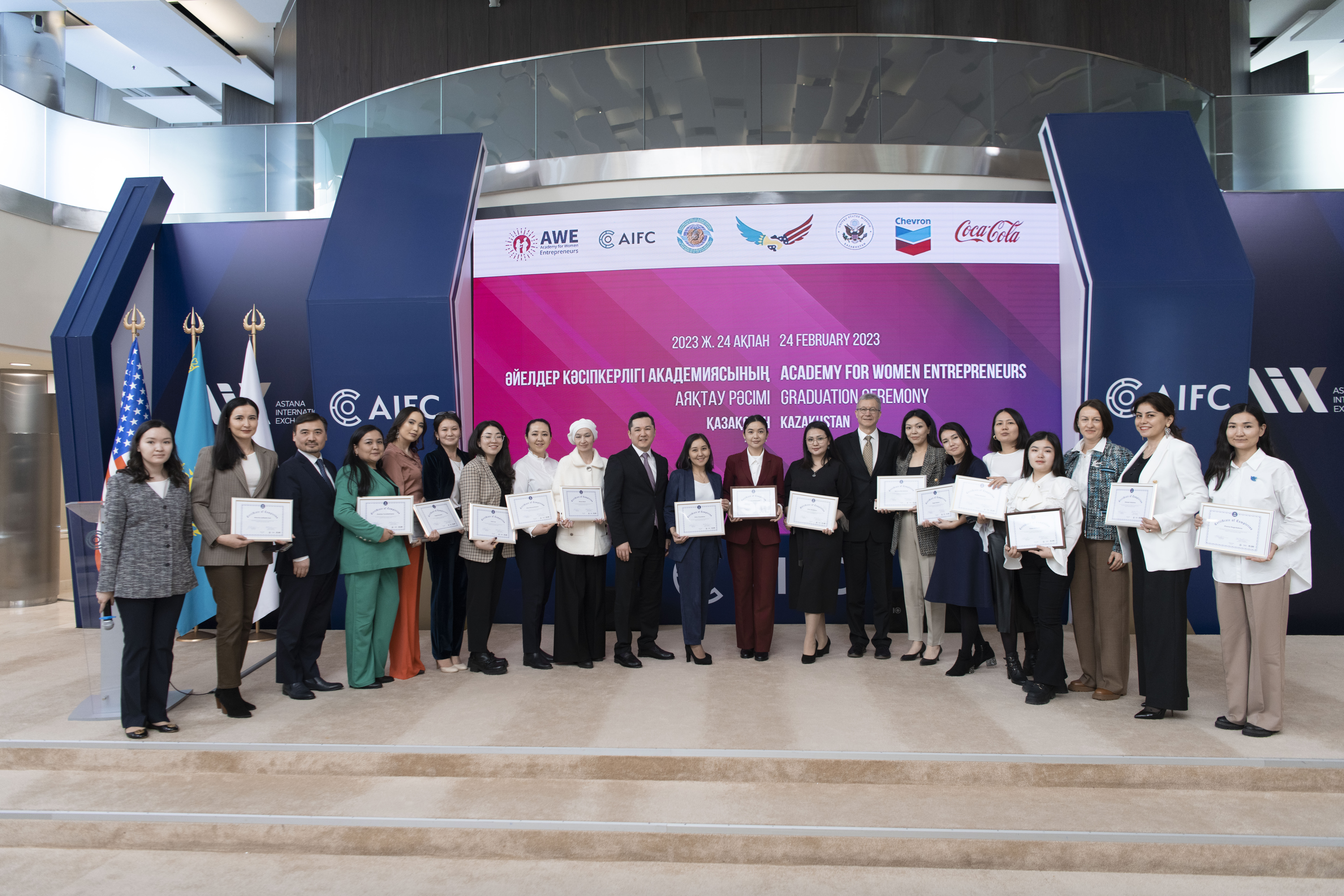A personal narrative by Alya Saeed Salman Alobaidi, a Fulbright Scholarship alumna from Baghdad, who completed her Master’s degree in neuroscience at the University of Hartford in Connecticut.
The Fulbright Scholarship was an incredible turning point in my life, a journey that touched my heart and transformed me in ways I never imagined. It all began one ordinary day as I scrolled through my Facebook feed. Suddenly, a post from the American Embassy about the Fulbright scholarship caught my eye, and I found myself captivated by the possibilities it held. Without hesitating, I submitted my application, driven by a deep belief in my English-language skills and my professional and personal accomplishments. Additionally, having already participated in the Department of State’s SUSI Women in Leadership program, I was confident that this opportunity was meant for me.
The year-long application process was quite demanding, pushing me to my limits and challenging my determination every step of the way. Each milestone I encountered came with its own set of hurdles, requiring me to remain dedicated and persevere through the difficulties. The first was passing the TOEFL. Achieving success in this step fueled my motivation to continue moving forward. Next came the interview phase, where I had the privilege of meeting U.S. Embassy officers and Fulbright alumni. The competition for the Fulbright scholarship was intense, with numerous highly talented individuals competing for a coveted spot. Fortunately, I successfully navigated all the necessary steps and was awarded a scholarship.
The path to obtaining the visa was filled with uncertainty, which was complicated by the U.S. Embassy’s closure. Tragedy struck my family as my beloved father passed away, adding an emotional burden to an already challenging process. The world was also grappling with the COVID-19 pandemic, intensifying the fear and uncertainty that loomed over each step. It was a time of immense stress, grief, and a tumultuous mix of emotions.
When I received the news that my visa was approved, it was bittersweet as the joy of that moment was intertwined with the sorrow of my father's absence. Yet deep in my heart, I knew that this was a journey I needed to embark upon. The prospect of traveling to the United States, a land that held a special place in my father's heart, filled me with excitement and trepidation. I knew I had to summon all my strength to honor his memory and make the most of this incredible opportunity.
The beginning of my Fulbright journey was challenging. COVID-19 restrictions limited my ability to connect with others and isolated me. However, I was able to adjust quickly to my new environment, in large part because my friend and brother were already living in the United States. Additionally, Fulbright’s one-month pre-academic program provided invaluable insights into transitioning to life in America.
When I first arrived in the United States, I tried to socialize with both international and American colleagues at my university. However, the challenges posed by the COVID-19 pandemic, such as online courses and restricted gatherings, made it difficult to meet people in person. Thankfully, as vaccinations progressed, life started to improve.
Eventually, I had the opportunity to spend time with these colleagues. We spent time together, trying new restaurants, hiking, and kayaking. The people I met were open-minded, flexible, and brimming with talent. They had a zest for life, a competitive spirit, and a yearning for new adventures. Interacting with friends from different cultures broadened my perspective on life. I tried their diverse cuisines and learned about the valuable life lessons they had gained from their unique experiences.
Since childhood, I had been curious about American culture, partly influenced by my father's 11- year stay in the United States. I longed to immerse myself in this culture. Fortunately, the Fulbright scholarship provided me with the opportunity not only to experience American culture but also to explore German, Brazilian, Ukrainian, Italian, French, Indian, Mexican, and Indonesian cultures. I was amazed at how the U.S. brings together people from diverse backgrounds; it's no wonder that the strength of America lies in its diversity.
The differences extended beyond cultural experiences. I noticed differences in clothing choices and daily routines. In America, fashion choices are practical and more liberal than in Iraq, where we dress conservatively and formally. In the U.S., my neighbors woke up at 5 or 6 a.m. to jog around the neighborhood, which made me wonder why this wasn’t common back home.
I am so grateful for this precious journey because it transformed my personality, enabling me to understand people better and take pride in sharing Iraqi culture, heritage, and traditions. I even had the chance to cook Iraqi food for my host family and my Fulbright friends. My experience benefited me and those I met and interacted with.
On July 4th, I saw the sky light up with fireworks. I celebrated Thanksgiving with my host family, marveled at the festive splendor of Christmas in New York City, and took part in Halloween’s spirited revelry. These experiences etched themselves into my heart, forging an unbreakable bond between me and Americans.
Every city I visited during my stay in the United States revealed its own unique character—its weather, culinary delights, and natural wonders. From the vibrant streets of New York to the breathtaking landscapes of the West Coast, I was constantly amazed by the nation’s diversity. These encounters were not mere sightseeing expeditions; they were windows into the souls of different communities, each with its own stories, struggles, and triumphs.
On an academic level, I was fortunate to be part of the University of Connecticut’s Center on Aging. During my time there, I collaborated with talented and supportive American professors who guided me throughout my research thesis program and continued to support me even after I graduated. Additionally, I worked as a research assistant for six months at the center, which allowed me to gain valuable hands-on experience, complete my research article, and further enhance my research skills.
Through this journey, I accomplished much more than just obtaining a master's degree. I gradually discovered myself, understanding who I am as a person, and clarifying my goals and priorities in life.
Returning home, I was excited to bring back everything I had learned in the United States. I made a conscious effort to approach my home country with an open mind and accept the social and cultural differences. Because Iraqi society is conservative and judgmental, I knew that the freedom I had experienced in the U.S. would not be possible at home. However, by embracing an open-minded and flexible mindset, I was able to adapt gradually. Although the pace of development may be slower in Iraq compared to the U.S., I have managed to create an environment similar to the one I was in during my time abroad.
Currently, I am working at the American University of Baghdad, where I have the opportunity to meet new people from various backgrounds every day. Through sharing my experiences in the U.S., we engage in discussions about the differences and contemplate what can be established to keep pace with the rest of the world.
The Fulbright experience has left an indelible mark on my soul, allowing me to forge lifelong connections. I am grateful for the individuals I met along this journey and the lessons I have learned from all of them.
To future Fulbright scholars, I highly recommend embracing every chance and opportunity that comes your way, relishing each step of the Fulbright journey. It's not solely about obtaining a master's degree; it's about immersing yourself in a new culture, exploring a new society, venturing into the world, getting to know yourself better, delving deep within, and fostering flexibility in the face of uncertainty. Be confident in yourself, work on improving your English language skills, and savor every moment of this incredible journey. Remember to build meaningful connections and maintain contact with the people you meet along the way.

